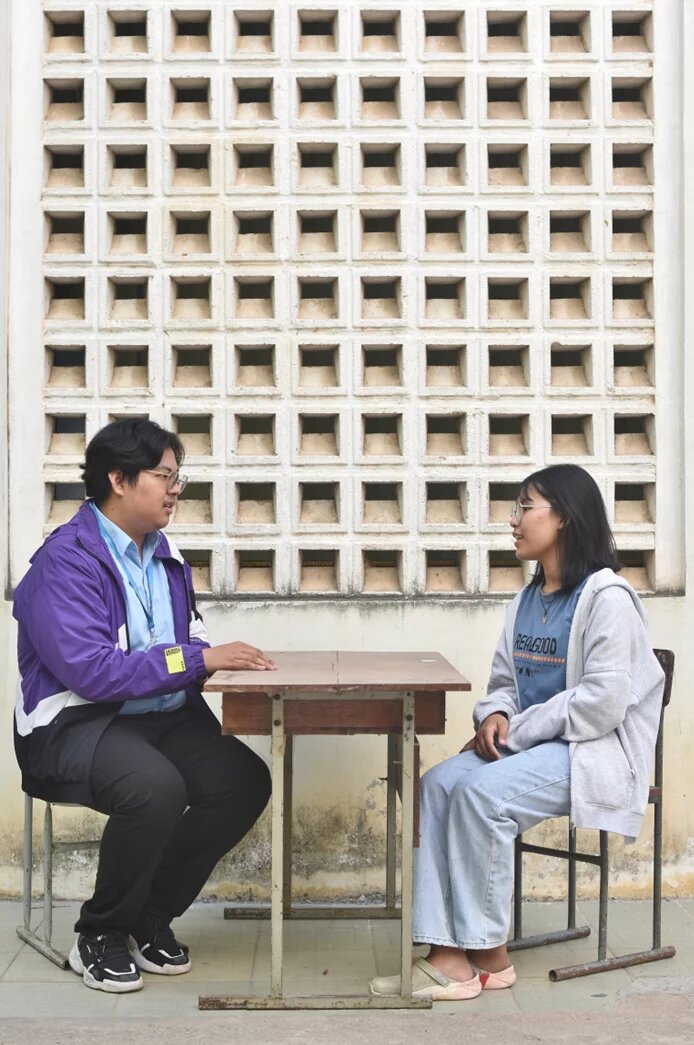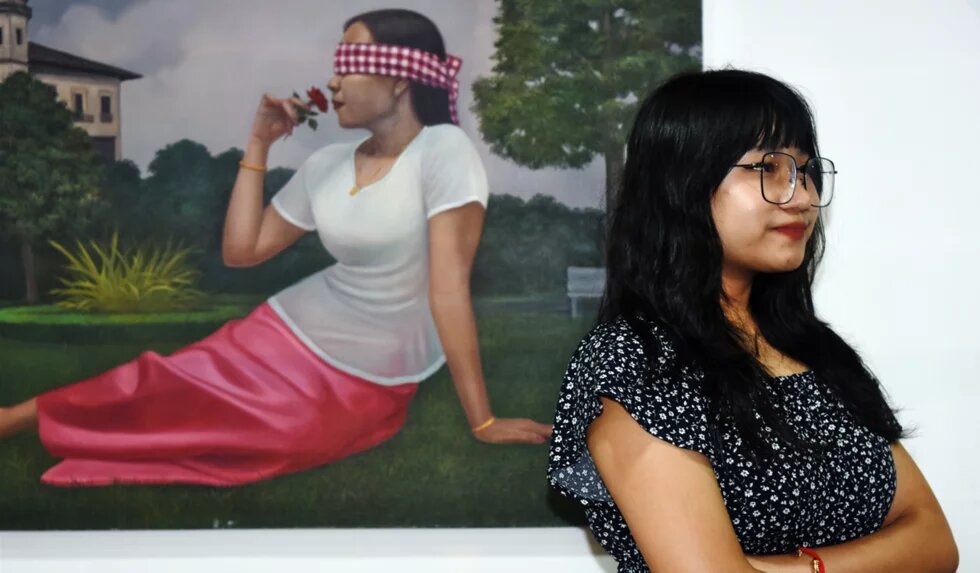

“I learned a lot about unpaid care work, not just the actual household chores but its bigger role in society. There is still discrimination in the workplace, with women not being allowed at higher positions due to the prejudice of being more emotional. This is the same with positions of power, where more men are in government ministries.”
“It doesn't work if only women have to make the effort, everyone needs to engage in this discussion and move together, suggest new policies to make Cambodia progress as a whole.”
Vy Chhailim and Hok Pich sit under a tree at the Institute of Technology of Cambodia in Phnom Penh. The two are sipping drinks near a university cafe, as other students discuss their assignments and homework.
Pich, who is studying food technology, and Chhailim, a student at the Royal University of Law and Economics, are discussing a debate they attended on gender norms and shaming of women. The debate sparked a discussion about issues that most people shy away from, such as the gendered nature of domestic work, LGBTQIA+ issues, sex work and different standards society places on men and women.
The debates give students a space to learn and talk about issues that are rarely discussed at the family dinner table or the local coffee shop.
The debate is an ongoing program from The Cambodian NGO Committee on CEDAW (NGO-CEDAW), which works with a network of local organizations to track the implementation of the UN Convention on Elimination of all Forms of Discrimination Against Women. The NGO provides an alternate source of data, information and alternative reports on the status of implementation of the convention by the government.
Chhailim and Pich both feel there have been some improvements in reducing gender disparity, but admit that is limited to major urban parts of the country. They also took away a lot from the discussion on gender identity, sex work and the burden of domestic work. Hear their takeaways from the debate.
Chhailim
“Gender equality is getting better compared to when I was a kid. There are more opportunities to pursue higher education and less restrictions on what women can wear.”
Pich
“In the city, the situation is better and a lot still has to be done. Such as how the media still mocks and diminishes women making a living through sex work.
You can see judgmental comments on TikTok, such as putting a coffee cup emoji for women to say they belong in the kitchen. Or comments where people still talk about how women dress, like if they are wearing a short skirt, etc.”
Chhailim
“I think what has changed the most in the last 30 years is access to education for women, fewer restrictions on their daily life, an increase in access to information such as on social media and more freedom to choose their partners, more independence, income and opportunities. The young generation should use their education to think outside the box.”
Pich
“It's your time to shine and not be scared; all young people should educate themselves.”
This article is an excerpt from "Profiles of Courage." Click here for the full reading.